Hey there, beauty enthusiasts! Have you noticed how everyone’s buzzing about natural skincare lately? It’s not just a trend – more and more people are looking for gentle, effective, and planet-friendly natural skincare ingredients to take care of their skin. And guess what? Nature holds some incredible secrets that can help you achieve that healthy, radiant glow you’ve always dreamed of!
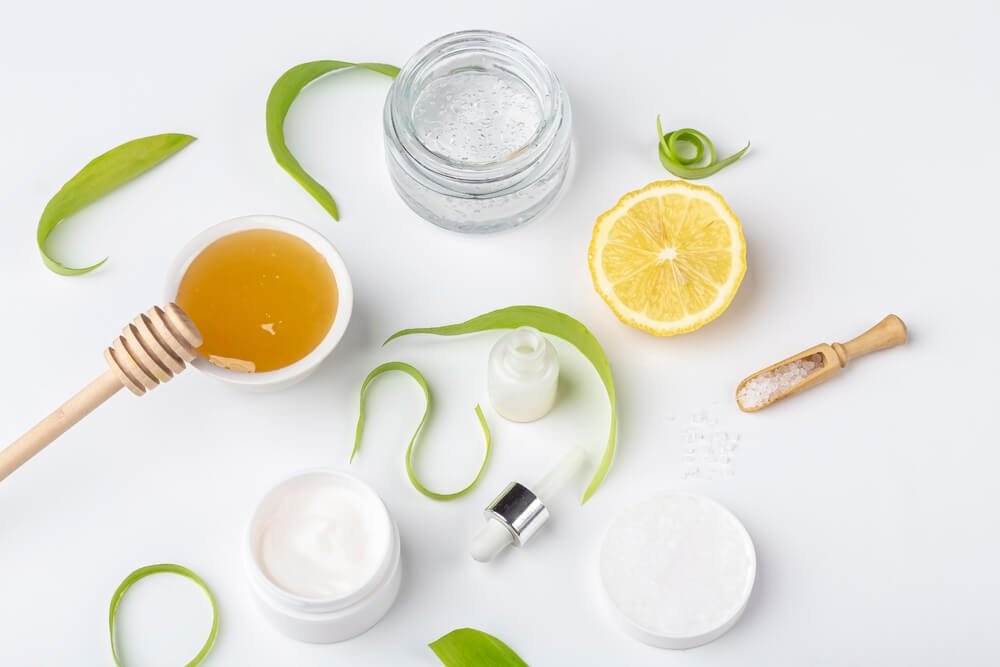
Now, you might have heard that natural ingredients aren’t as potent as their synthetic counterparts. But hold on! That’s a myth we’re about to bust wide open. Get ready to explore the science-backed power of natural skincare ingredients and discover how to incorporate them into your daily routine!
Beyond Marketing Hype: Separating Science from Science-Washing
Before we dive into the world of botanical wonders, let’s talk about something super important: scientific evidence. It’s easy to get swept away by fancy marketing claims, but remember, not all that glitters is gold. There’s a lot of “science-washing” happening in the beauty industry, where companies use scientific jargon to make their products sound more impressive than they actually are.
So, how can you tell the real deal from the hype? Look for ingredients that have been extensively researched and studied, with a solid body of evidence to back up their claims. Think of it like this: you wouldn’t trust a doctor who just claimed to be an expert, right? You’d want to see their credentials and proof of their knowledge. It’s the same with skincare ingredients!
When you’re researching an ingredient, you’ll likely come across different types of studies:
- In vitro studies: These are like science experiments in a test tube, where scientists see how an ingredient interacts with cells in a controlled environment. They’re a great starting point, but they don’t tell the whole story of how the ingredient works on actual skin.
- Ex vivo studies: These are a bit rarer, but they involve testing an ingredient on tissues outside of a living organism (think: samples of human skin). This gives us more information than in vitro studies, but it still doesn’t fully represent how the ingredient behaves on a living person.
- In vivo studies: These are the ones where things get real – they involve testing ingredients on live animals or humans. These studies provide more realistic results and insights into how the ingredient works in a living system. Since animal testing for cosmetics is banned in many places (like the EU), these tests are often done on human volunteers.
- Clinical studies: These are the gold standard! They involve testing ingredients on a larger group of volunteers in a controlled setting, providing the most reliable data on efficacy and safety. The more volunteers involved, the more robust the results.
- Review studies: Think of these as summaries of existing research. Scientists look at multiple studies on a particular ingredient and analyze the collective evidence to draw conclusions. Look for peer-reviewed articles, which means they’ve been vetted by other experts in the field.
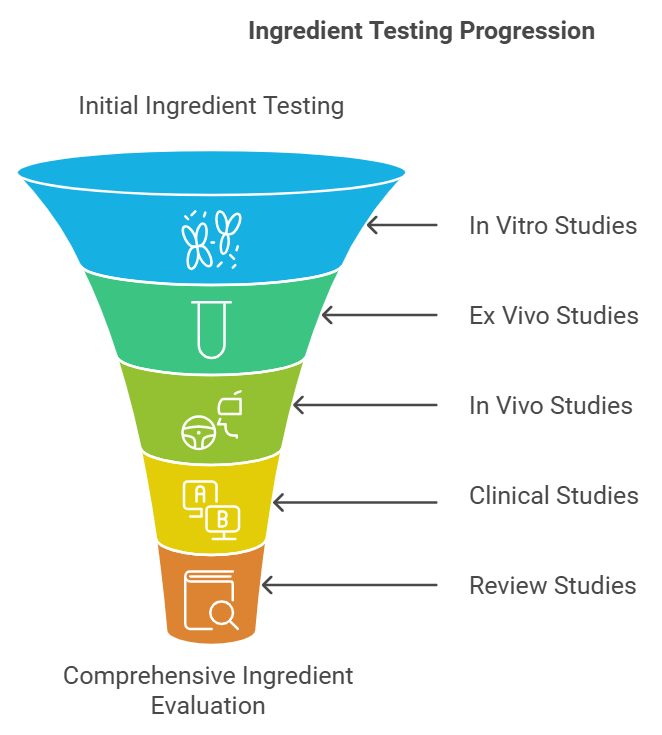
Remember, it’s totally normal to have questions while researching an ingredient. Science is constantly evolving, and very few things are ever definitively “proven.” What’s important is to be a critical consumer and look for brands that are transparent about their research and sourcing practices.
Unlocking the Potential of Powerful Botanicals: Your Guide to Hero Ingredients
Ready to discover some of nature’s most potent skincare allies? Let’s dive into a world of science-backed botanicals that can transform your skincare routine!
For the Dry Skin Crew:
- Jojoba Oil: This golden oil is a skincare superstar, mimicking our skin’s natural sebum and delivering intense moisture. Studies suggest it has anti-inflammatory, antimicrobial, and antifungal properties, making it perfect for soothing dry, irritated skin. Plus, it’s super stable and can help extend the shelf life of your products!
- Rosehip Oil: Known for its gorgeous reddish-orange hue and regenerative powers, rosehip oil is a rich source of alpha-linolenic acid. It boasts anti-inflammatory and antioxidant properties, making it a great choice for repairing the skin barrier, tackling dryness, and boosting collagen production.
- Squalane: This plant-derived oil is naturally found in our skin’s sebum. It helps to lock in moisture, support the skin barrier, and promote a soft, supple complexion. It’s a favorite for mature skin, as it may help restore elasticity and flexibility.
- Hyaluronic Acid: A true hydration hero, hyaluronic acid is naturally present in our skin, attracting and holding onto water molecules. As we age, our natural hyaluronic acid levels decline, but luckily, we can replenish them with skincare products! This wonder ingredient can plump up the skin, smooth fine lines, and improve overall hydration.
- Ceramides: These lipids play a vital role in maintaining a healthy skin barrier, preventing moisture loss and protecting against environmental aggressors. Like hyaluronic acid, our natural ceramide levels diminish with age, leading to dryness and sensitivity. Adding ceramides back into your routine can help strengthen the skin barrier, lock in hydration, and soothe irritation.
For the Oily Skin Squad:
- Rosemary: This aromatic herb is more than just a culinary delight – it packs powerful antioxidant and antimicrobial properties. Rosemary extract can help protect the skin from free radical damage, soothe inflammation, and even help balance oil production.
- Green Tea: This beloved beverage is also a skincare savior, rich in catechins (a type of antioxidant). Green tea can help combat free radicals, reduce inflammation, and even inhibit the breakdown of collagen, keeping your skin looking youthful and vibrant.
- Niacinamide: While not strictly a natural ingredient, this form of vitamin B3 offers a plethora of benefits for oily skin. It helps to control oil production, minimize the appearance of pores, reduce inflammation, and even fade hyperpigmentation.
For the Sensitive Skin Sweethearts:
- Oats: Considered a skincare staple for centuries, oats are known for their gentle, soothing, and moisturizing properties. They can help calm irritation, reduce redness, and support a healthy skin microbiome. Look for products containing colloidal oatmeal, which is finely ground and specially formulated for skincare.
- Aloe Vera: This succulent plant is a go-to for soothing burns, but it’s also a powerhouse for sensitive skin. Aloe vera is packed with vitamins, antioxidants, and anti-inflammatory compounds that can help calm redness, reduce irritation, and promote healing.
- Chamomile: Known for its calming effects, chamomile is a gentle and effective ingredient for sensitive skin. It helps to soothe inflammation, reduce redness, and promote a healthy complexion.
For the Ageless Beauties:
- Bakuchiol: Often hailed as “nature’s retinol,” bakuchiol is a plant-derived alternative to retinol, offering similar anti-aging benefits without the potential for irritation. It helps to stimulate collagen production, reduce the appearance of fine lines and wrinkles, and improve skin elasticity.
- Vitamin C: This potent antioxidant is a must-have for anyone concerned about aging. Vitamin C helps to protect the skin from free radical damage, brighten the complexion, and boost collagen production. Look for stable forms of vitamin C, such as ascorbyl palmitate, which are less likely to oxidize and irritate the skin.
This is just a glimpse into the incredible world of natural skincare ingredients. Remember, everyone’s skin is different, so it’s essential to experiment and find what works best for you. And don’t hesitate to consult with a dermatologist if you have any specific skin concerns!
Nurturing Your Skin from the Inside Out: A Holistic Approach
Here’s a little secret: true skin health starts from within. While topical products play an important role, it’s equally crucial to nourish your body with healthy habits and a mindful lifestyle. Think of it this way: you can’t expect a plant to thrive if you only water its leaves, right? You need to nourish its roots too!
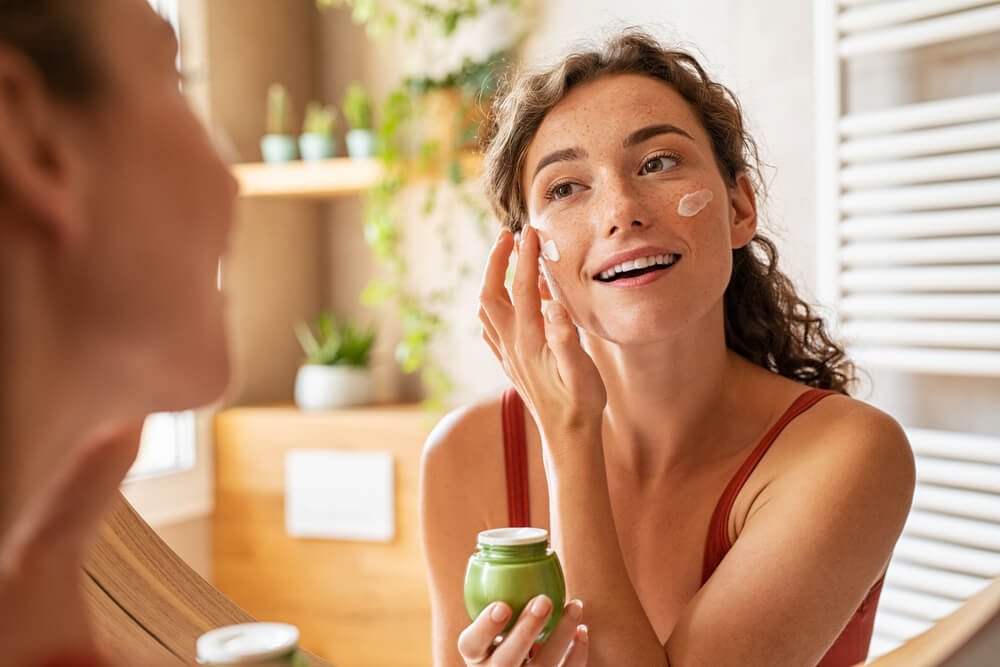
Here are a few essential tips for cultivating a holistic approach to skin health:
- Hydrate Like a Boss: Water is essential for every bodily function, including skin cell regeneration and collagen production. Aim to drink at least eight glasses of water per day.
- Eat a Rainbow of Nutrients: Fruits and vegetables are packed with vitamins, minerals, and antioxidants that nourish your skin from the inside out. Make sure to include plenty of healthy fats, like those found in fish, nuts, and seeds, to support a strong skin barrier.
- Manage Stress: Chronic stress can wreak havoc on your skin, triggering inflammation, breakouts, and premature aging. Find healthy ways to manage stress, such as exercise, meditation, yoga, or spending time in nature.
- Prioritize Sleep: Beauty sleep is real! When you sleep, your body repairs and regenerates skin cells, producing collagen and elastin. Aim for 7-9 hours of quality sleep each night.
- Explore the Gut-Skin Axis: Emerging research suggests a strong connection between gut health and skin health. Consider incorporating probiotics and prebiotics into your diet to support a balanced gut microbiome, which may lead to clearer, healthier skin.
Creating Your Own Natural Beauty Rituals: DIY Skincare Fun
Want to unleash your inner skincare alchemist? DIY skincare is a fun and rewarding way to personalize your routine and harness the power of natural ingredients right from your kitchen! Plus, it’s a great way to reduce your environmental impact and avoid unnecessary packaging.
Here are a few simple and effective DIY recipes to get you started:
Honey and Yogurt Mask for Hydration and Glow:
- Combine 1 tablespoon of plain yogurt (the kind with live cultures is best) with 1 teaspoon of raw honey.
- Apply evenly to your face and neck, avoiding the eye area.
- Relax for 15-20 minutes, then rinse off with lukewarm water.

Oatmeal and Honey Scrub for Gentle Exfoliation:
- Grind 2 tablespoons of rolled oats into a fine powder using a blender or food processor.
- Mix the oat powder with 1 tablespoon of raw honey and 1 teaspoon of water to create a paste.
- Gently massage the scrub onto damp skin in circular motions, avoiding the eye area.
- Rinse off with lukewarm water and pat dry.
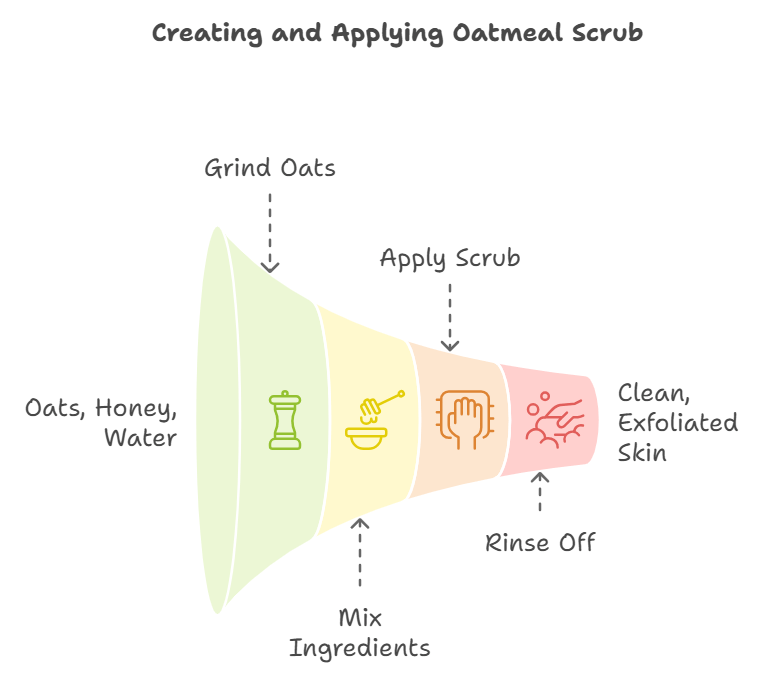
Rose Water Toner for Soothing and Refreshing:
- Fill a spray bottle with pure rose water (look for organic options without added fragrance).
- Mist your face and neck after cleansing or throughout the day for a refreshing boost.
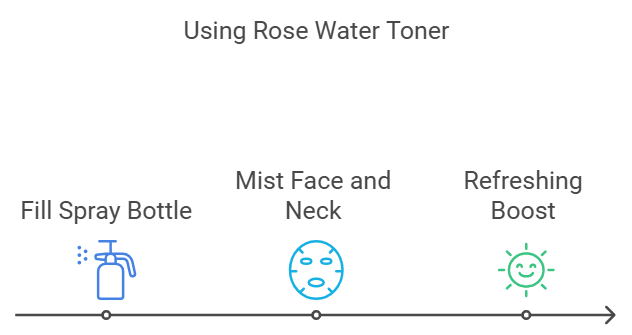
Remember, safety always comes first when it comes to DIY skincare. Always patch test a new recipe on a small area of skin before applying it to your entire face. Store your creations properly in clean containers and avoid using ingredients that have gone bad.
Aligning Your Skincare Routine with Your Values: Ethical Sourcing Matters
As you embark on your natural skincare journey, it’s important to consider the ethical and environmental impact of your choices. Just like you care about what you put on your skin, you should also care about where those ingredients come from and how they’re produced.
Look for brands that prioritize:
- Fair Trade Practices: This ensures that farmers and workers involved in ingredient production receive fair wages and safe working conditions.
- Sustainable Harvesting Methods: This means that ingredients are sourced in a way that doesn’t deplete natural resources or harm ecosystems.
- Minimal Environmental Impact: This includes using eco-friendly packaging, reducing waste, and minimizing carbon emissions throughout the production process.
Here are a few certifications to look for:
- Fair Trade: This certification guarantees fair prices, community development, and environmental sustainability for farmers and workers in developing countries.
- Rainforest Alliance: This certification promotes sustainable agriculture, biodiversity conservation, and improved livelihoods for farmers.
- USDA Organic: This certification ensures that products are made with at least 95% organic ingredients, grown without the use of synthetic pesticides, herbicides, or fertilizers.
- COSMOS: This European certification sets standards for organic and natural cosmetics, covering aspects such as ingredient sourcing, environmental impact, packaging, and labeling.
By choosing brands that align with your values, you can support a more ethical and sustainable beauty industry while taking care of your skin.
Debunking Myths and Setting Realistic Expectations
Let’s address the elephant in the room: are natural ingredients really less effective than synthetic ones? The answer is a resounding NO! In fact, many natural ingredients are backed by extensive scientific research, proving their efficacy in addressing various skin concerns. Just look at the hero ingredients we explored earlier – they’re all natural powerhouses that can deliver visible results.
Here are a few more myth-busting truths to keep in mind:
- Natural doesn’t always mean safe or suitable for everyone. Just like with any skincare ingredient, natural ingredients can cause allergic reactions or irritation in some individuals. Always patch test a new product before applying it to your entire face, and be mindful of any sensitivities you may have.
- Natural skincare often requires patience and consistency. Unlike some potent synthetic ingredients, natural ingredients often work more gently and gradually. Don’t expect overnight miracles! Stick with your routine for at least a few weeks to see noticeable improvements.
- Natural ingredients may not be a solution for every skin concern. While natural skincare can do wonders for maintaining healthy skin, some conditions may require professional treatment or intervention. Don’t hesitate to consult with a dermatologist if you have any concerns or if your skin isn’t responding as expected.
Embracing a Natural and Informed Approach to Skincare
Congratulations! You’ve just unlocked a world of natural skincare wisdom. By embracing a science-backed, holistic, and mindful approach, you can achieve healthy, radiant skin that reflects your inner beauty.
Remember, knowledge is power! Keep exploring, researching, and advocating for a more ethical and sustainable beauty industry. And most importantly, have fun experimenting with nature’s bountiful offerings to discover what makes your skin truly sing!
Click here to read more on this. Visit our blog page for more exciting contents.

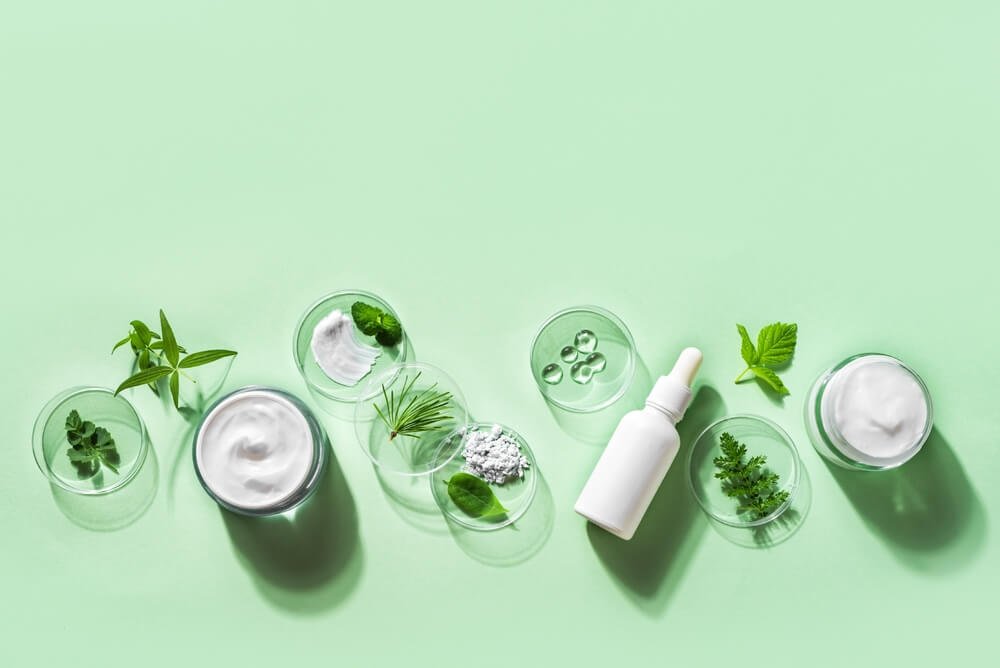


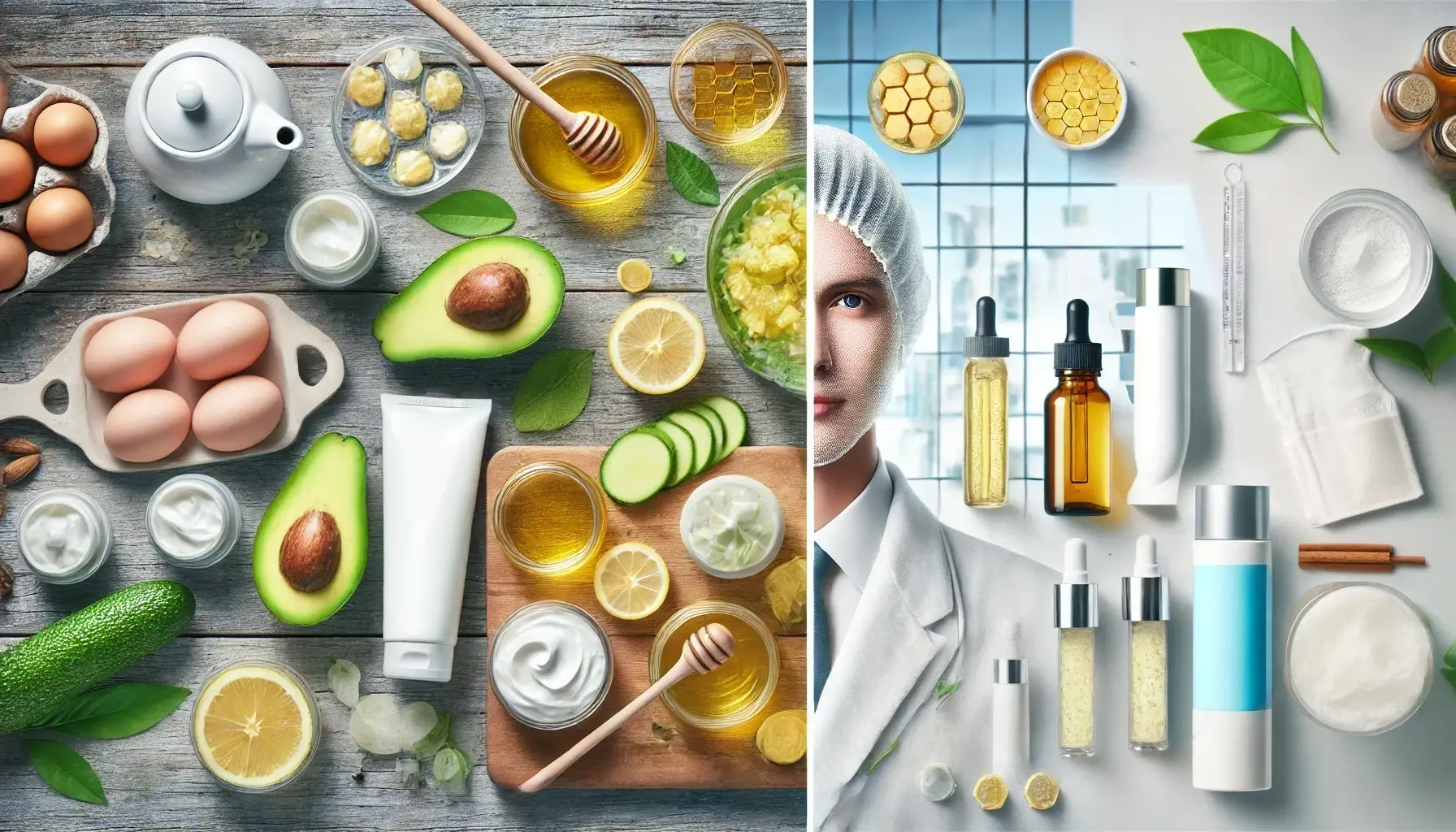
Leave a Reply